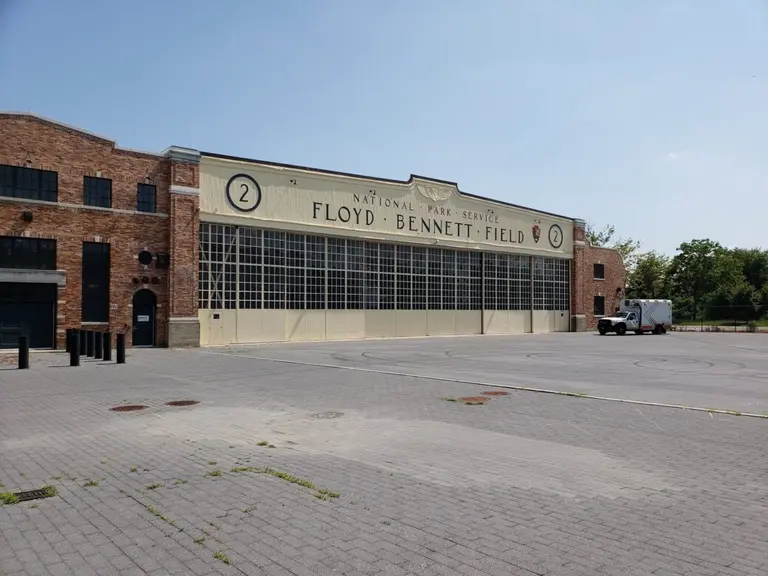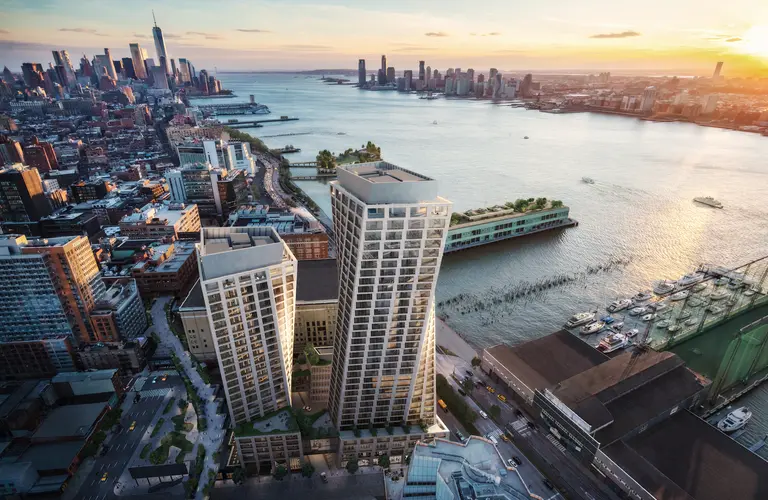New York City’s housing experts have a wish list for Mayor Adams
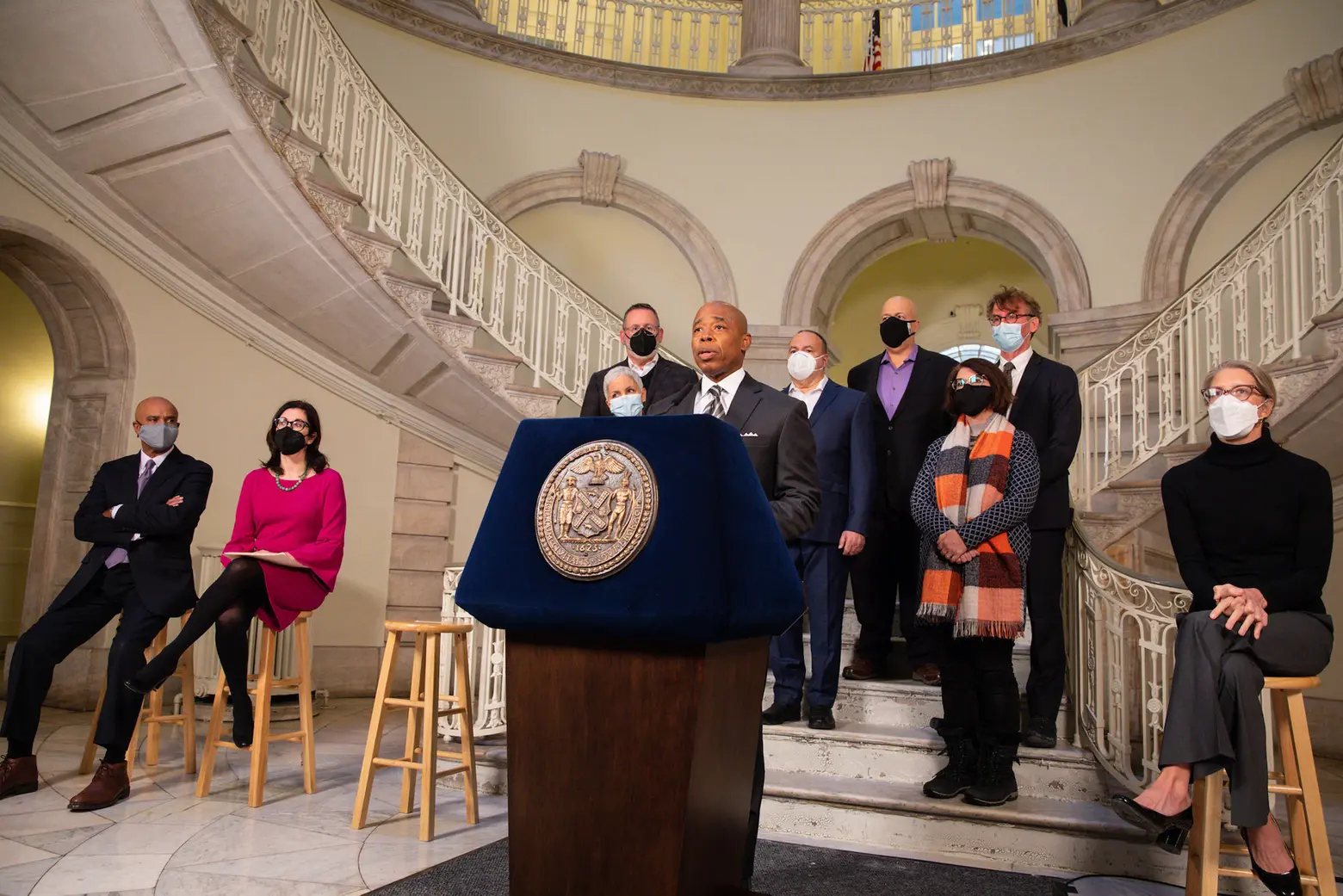
Mayor Eric Adams announces his housing leadership team in the rotunda at City Hall on Sunday, January 30, 2022. Michael Appleton/Mayoral Photography Office via Flickr.
Shortly after taking office last month, New York City Mayor Eric Adams introduced the team that will take the lead on affordable housing strategy, headed by Jessica Katz as the city’s chief housing officer. The announcement came not a moment too soon; rents and home prices continue to rise beyond the reach of many, while homelessness and eviction threats are a growing concern. In a city where the topic of housing is never far from view every day, New Yorkers are looking to the new mayor to address the issues they feel must change. 6sqft asked individuals and organizations involved in the city’s housing and real estate sectors to offer an important “wish list” item they would like to see Adams address during his time in office.
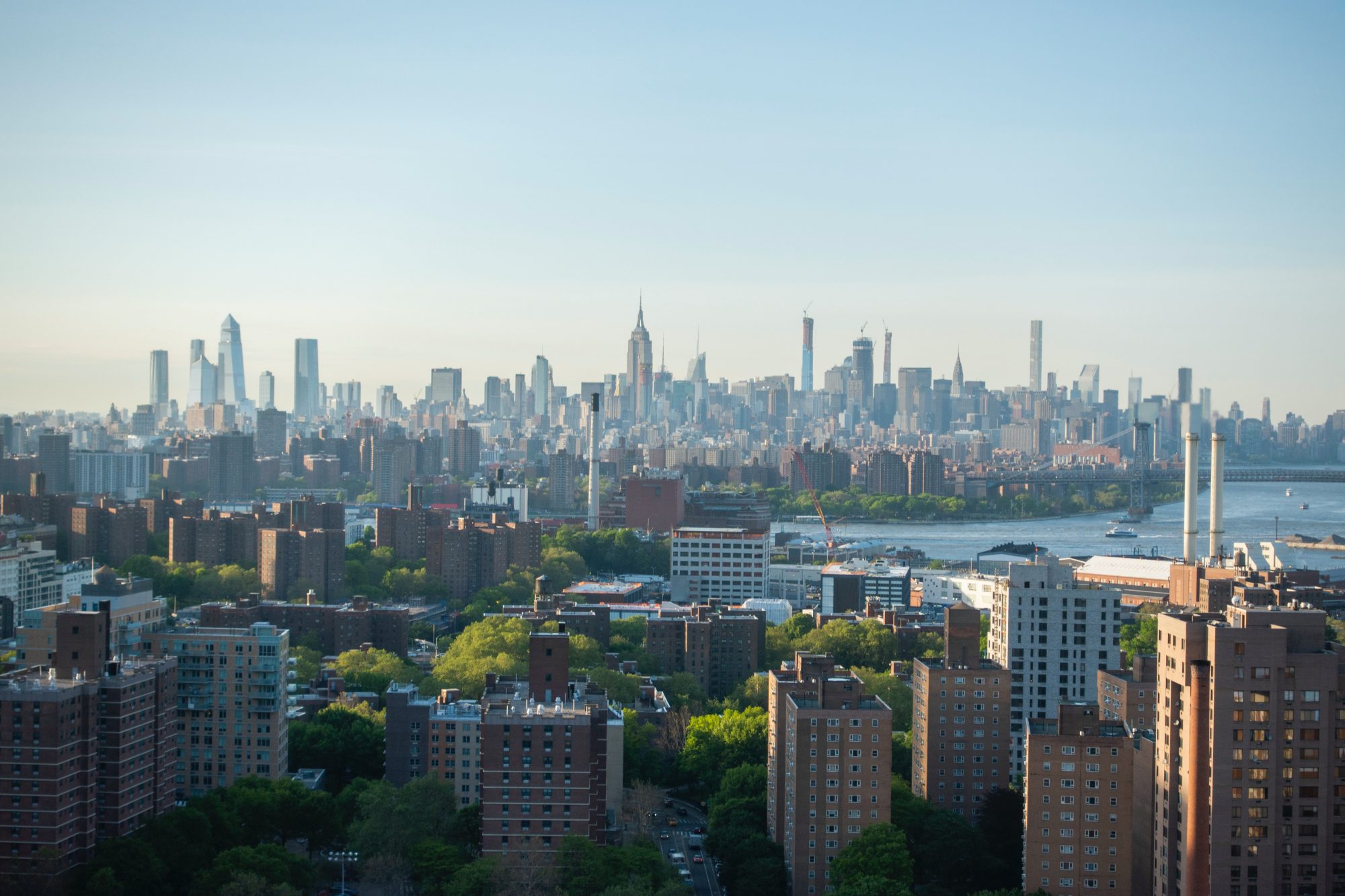
Photo by Daniel Lee on Unsplash
Adams has voiced his support for some strategies that would create more homes and reduce costs, including upzoning some areas, creating new housing, legalizing basement apartment dwellings and Accessory Dwelling Units (ADUs), and converting underused hotels and office buildings into affordable homes. New Yorkers who spend their days in the trenches of the housing crisis have added their own suggestions here.
We need more housing.
A recently released report commissioned by the Real Estate Board of New York (REBNY) found that the city would have to add about 560,000 new rental units by 2030 in order to keep pace with the projected population and job growth. For some, that means building more new homes, upzoning appropriate areas, and incentivizing developers to make their units available to everyone with strategies like 421-a tax incentives, as well as finding housing in more creative ways.
Carlina Rivera, Council Member, District 2
We are fighting an unprecedented affordable housing crisis, and there is no silver bullet or quick fix–we need every possible tool available to us. The COVID-19 pandemic devastated our city’s hotel industry in the spring of 2020. We now have a once-in-a-generation chance to convert struggling hotels into affordable housing units, and the biggest obstacles we face are the important, but now outdated, building code requirements that make conversion a near impossibility.
In December, I introduced legislation that will ensure New York City does not miss this opportunity by simplifying the process to update or amend a Certificate of Occupancy, thus allowing us to safely create new affordable homes for the New Yorkers and their families who desperately need them. Mayor Adams was supportive of efforts to convert hotels into new affordable housing units while on the campaign trail, and it is my sincere hope he will continue to honor that goal by supporting policies such as this one.
James Whelan, President, Real Estate Board of New York (REBNY)
New York City is failing to produce enough rental housing, particularly at below-market rents, to keep up with population growth–and it’s making the housing crisis even worse. Addressing this crisis will require city and state leaders to make smart policy choices and work closely with the private sector to significantly increase rental housing production as quickly as possible.
Eric Kober, Senior Fellow, Manhattan Institute
My “wish list” would include key zoning reforms that would allow the private sector to greatly increase the number of new housing units constructed in New York City. Some of these reforms include:
- Rezonings in every one of the city’s 59 community districts, but particularly in high-opportunity neighborhoods, to facilitate more residential density.
- Reforms to former Mayor Bill de Blasio’s Mandatory Inclusionary Housing program to ensure that new privately-financed housing construction can proceed pursuant to rezonings outside the city’s highest-rent neighborhoods, without needing to wait in line for city subsidies.
- Elimination of residential and commercial off-street parking requirements, which raise the cost of new housing and of new ground-floor retail space.
- Allowing a second unit on all residential lots where only one unit is allowed today.
- Allowing three- and four-unit walkup residential buildings more broadly, in locations with good subway or bus service that don’t allow such buildings today.
- Mayor Adams will also need to work with the governor, state legislature, and MTA to renew the Section 421-a tax exemption program so that new rental housing remains economically feasible, and to reconfigure the city’s streets to make bus service faster and more reliable as neighborhoods experience housing growth. If his administration can achieve this “wish list” New Yorkers will see real progress in mitigating the city’s chronic housing crisis.
Jed Resnick, CEO, Douglaston Development
Douglaston Development’s primary wish for the new administration is that it will recognize and address that the only lasting solution to our city’s housing shortage is to create additional housing options for New Yorkers in every neighborhood. More specifically, our “wish list” consists of the city doubling down on its commitment to funding the development of affordable housing, and streamlining city approval processes to accelerate development. We would also love to see accelerated efforts to pursue upzoning opportunities in all five boroughs in order to expand housing options for every segment of the market (market rate, inclusionary, and 100% affordable) and city advocacy with state government for a workable tax abatement program for mixed-income projects that bring inclusionary housing into high-opportunity neighborhoods.
Improve, expand–and make affordable housing a priority.
For some, the most important focus was to fix what’s broken and expand programs designed to help keep people from becoming homeless, help everyone afford a home, and help those who wish to be homeowners. And to put NYCHA and affordable housing at the top of the to-do list.
Douglas Powell, leader, VOCAL-NY
I need the city to stop paying five thousand dollars to keep me in the temporary shelter–instead get me housed with the voucher I already have. I need more well-trained caseworkers and lawyers at the commission on human rights to get me placed in a permanent home.
Kristen Chin, Director of Community and Economic Development, Hester Street
NYCHA is home to 1 in 15 NYC residents; invest in the people who keep our city running! Ensure that a sustained, increased investment in NYCHA is a priority of our city’s housing plan for years to come while centering the voices of NYCHA residents in decision-making processes surrounding their homes and communities.
Michael Gianaris, State Senate Deputy Majority Leader
As we begin a new session with a new administration, I hope we can successfully expand the Housing Our Neighbors with Dignity Act (HONDA) by allocating more funding so it can realize its full potential. I am also hopeful we can enact the Good Cause Eviction law and provide funding to speed up NYCHA repairs and capital projects so tenants facing extended outages are given some level of relief, like as I’ve proposed in the NYCHA Utility Accountability Act.
Corinthia A. Carter, President, Legal Services Staff Association (LSSA 2320)
Mayor Adams should use his power as mayor to do the following, among other things:
- Prosecuting grossly negligent landlords for failing to provide safe and habitable housing.
- Stopping the sale of public land to private interests.
- Drastically improving the current Mandatory Inclusionary Housing policy to provide more deeply affordable housing.
The 1971 Urstadt Law gives Albany incredible power over New York City’s rent-regulated housing. NYC is blocked from enacting stricter forms of rent regulation than those imposed by the state. Thus, the NYC government has severely limited power over housing in NYC. We call on this law to be overturned. Even given this limitation, we demand that Mayor Adams does right by the tenants and the economically disadvantaged of this city.
Andrea Shapiro, Director of Programs and Advocacy, Met Council on Housing
We really need better and more enforcement. I think we saw with the fire in the Bronx–and a number of other fires have happened–we’ve not been doing a great job with enforcement. We don’t have enough money for HPD and the Department of Buildings to do the inspections they need to. When they do the inspections, the fines are almost jokes. We need stronger fines. We need real mechanisms to make sure that landlords want to fix the problems.
Áine Duggan, President and CEO, The Partnership for the Homeless
We encourage a city strategy to end homelessness that leverages existing data to advance the most cost-effective, humanitarian, and proven solution: prevention. Understanding that, at a minimum, shelter provision costs more than three times the cost of rental assistance, and that women and children of color are the face of NYC homelessness (due to bearing the brunt of overcrowding, evictions, and domestic violence in a city with a dearth of affordable housing), it is imperative the administration develop homelessness policy focused on intervening before people lose their homes. Such an approach would ensure a robust and streamlined system of rental and financial assistance, market value housing vouchers, landlord mediation and resolution services, and ongoing investments in permanent, affordable housing and supportive housing.
In tandem, cross-sector discussions (bringing together housing development, real estate and financial sectors, community and nonprofit housing and homeless services/advocacy organizations and relevant city agencies) to set housing development standards that ensure ongoing funding for affordable housing would provide a pathway to end NYC homelessness, permanently. The new administration could, and should, set its sights on making NYC a city that guarantees safe, permanent, affordable housing for all its residents.
Laura Mascuch, Executive Director, Supportive Housing Network of New York
The Supportive Housing Network of New York would like to see the Adams administration continue, improve and expand its current commitment to supportive housing–the 15,000 units over 15 years NYC 15/15 Initiative–and double its annual commitment in order to create 2,000 apartments preserved and created each year. We’d also like to see the administration invest in and streamline the processes by which homeless New Yorkers access supportive housing. And we’d like the city to increase city contracts so that nonprofits can pay their staff–most of whom are women of color–a decent living wage.
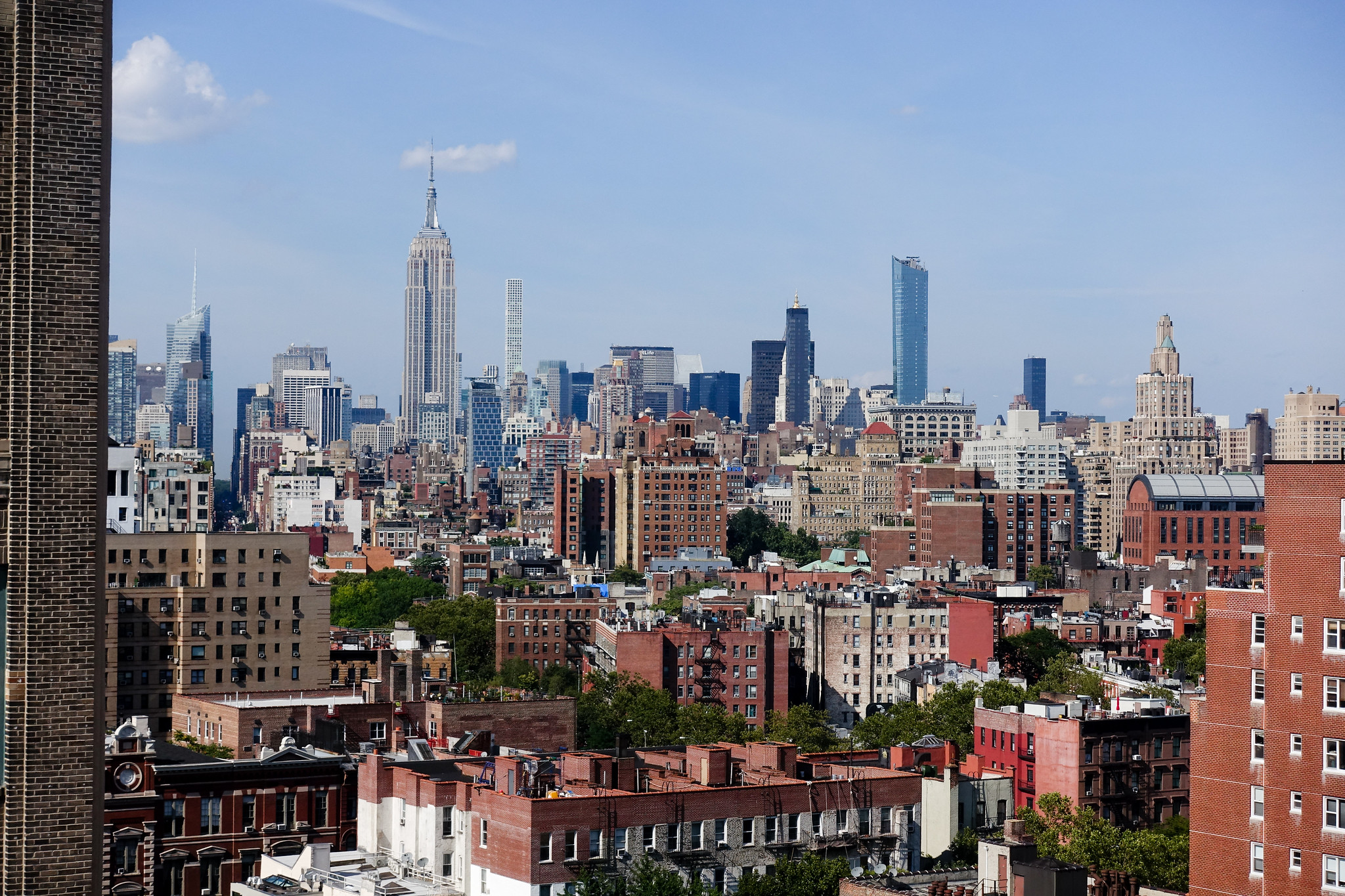 Photo via Flickr
Photo via Flickr
Julian St. Patrick Clayton, Deputy Director of Policy and Research, the Center for NYC Neighborhoods
We are thrilled to see Mayor Adams appoint new members of the City’s housing committee with Jessica Katz as Chief Housing Officer and Adolfo Carrión as Commissioner of the Department of Housing Preservation and Development, joining President of the Housing Development Corporation Eric Enderlin. All are true advocates who have demonstrated their dedication to affordable homeownership for New York City families. Mayor Adams and the new housing committee have a unique opportunity to increase pathways to homeownership while addressing the growing racial wealth gap in our city. We propose the following recommendations to the new administration, with a focus on protecting New York City homeowners and small property owners, while fostering new, community-owned housing opportunities.
- Reform the current tax lien sale reform with alternatives for collecting unpaid taxes that removes the burden from homeowners of color.
- Use vacant tax-delinquent plots for development.
- Institute city code fixes that would make basement apartments and ADUs safe and legal.
- Support passage of both state and municipal legislation giving residents the first opportunity to purchase their buildings from landlords that are selling the property.
- Allocate greater funding to the capital and discretionary needs of Community Land Trusts (more CLT RFPs) to help promote equality, durable affordability and cohesion among neighbors.
- Development of an ambitious new program to dwarf Mitchell-Lama, and create 120,000 new permanently affordable units for 400,000 New Yorkers at a cost of $9 billion. This turbocharge of homeownership, for those historically left out of this wealth-building opportunity, would make New York City home to the largest middle class in the nation.
- Appointment of a Chief Homeownership Officer for the City dedicated to expanding pathways to homeownership and addressing the growing racial wealth gap and the loss of Black and Brown homeowners over the last 20 years.
Can we all work together?
Another housing goal was to see a collaboration of often divergent parties, as well as the removal of encumbrances to landlords to continue to provide housing.
David Kramer, President, The Hudson Companies
The Rent Guidelines Board needs to be de-politicized and acknowledge the escalating costs of insurance, utilities, taxes, payroll, and health insurance.
Joseph Strasburg, President, Rent Stabilization Association (RSA)
We are hopeful that the new administration will share in our advocacy for a sensible, well-balanced housing agenda whose policies will address the needs of all stakeholders. Every building is an economic engine for their neighborhood. Putting politics aside, inviting us to the table–as the city’s largest providers of affordable housing–and addressing property tax inequity and the layers of regulation that unnecessarily encumber owners of multiple dwellings would be a good start if the city has any chance of successfully preserving its affordable housing infrastructure.
What’s good for the city…
Some respondents emphasized the idea that quality of life in New York City must be addressed overall, in order to facilitate growth in the city’s housing market.
Jonathan Miller, President/CEO, Miller Samuel Inc
I would preface this list with the idea that quality of life issues is essential to facilitate growth in the housing market. The city’s actions in the 1990s are one of the reasons the housing market was supercharged over the past twenty years and that most take for granted. Working on the “broken window theory” is something I experienced first-hand when I moved to the city in the late 1980s. There has been a concern that quality of life issues are being passed over, and that is not conducive to housing market growth.
My overarching ask here is for him to be in the public eye as much as possible. So far so good.
- Push for congestion pricing in Manhattan
- Champion more Citi Bikes and pedestrian plazas
- Wifi access in all subway stations and eventually, the trains
- Bring back greater police presence in the subways
- Standardize outdoor restaurant area construction, so they are safe and attractive. Consider keeping them after the pandemic
- Obsess about keeping subway stations and streets clean
Pamela D’Arc, Real Estate Agent, Compass:
- It is essential that new and improved attainable housing continues to attract young people starting their careers and that we hold onto families inclined to move to the suburbs solely for financial reasons. In addition, good education needs to be within more people’s reach, as does being able to attend the theater. This is imperative to maintain the culture and diversity of the city as we have come to know it.
- There is room for governmental policy to be more business-friendly in New York City. I hope the new mayoral administration will lure back companies we lost during the pandemic and create new tax incentives for existing companies to stay.
- In addition, I hope the new mayoral administration is solutions-oriented regarding crime and creates more options for people suffering from mental health issues. This is a huge problem that needs to be handled delicately and carefully. It requires spending money to create comfortable housing options with the necessary services to help those with serious mental health disorders.
RELATED:
- What will post-pandemic real estate look like in NYC? Experts weigh in
- How Joe Biden will affect NYC’s renters, real estate, and recovery
- Everything you need to know about affordable housing: applying, getting in, and staying put
- NYC Council votes to boost value of housing vouchers for homeless New Yorkers


